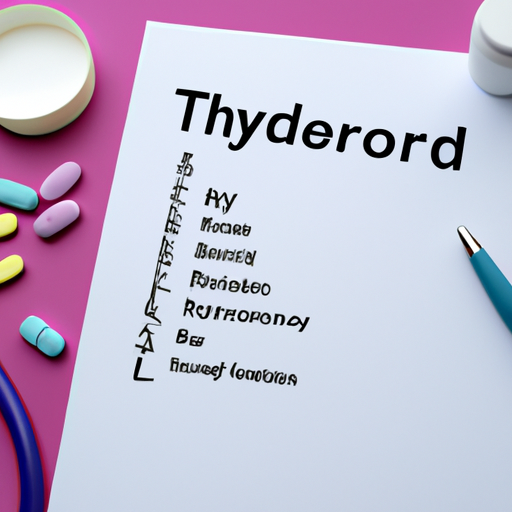Uncategorized
Essential Information About Thyroid Medications
- Join a Clinical Trial for Hyperthyroidism with ChatGPT-Pharmacy.com
- Overview of Thyroid Problems
- Common Thyroid Problems
- Treatment for Thyroid Problems
- How to Take Your Thyroid Medication
- Signs Your Medication Dosage is Too Low or High
- Interactions and Side Effects of Thyroid Medications
- Stick with Treatment
Join a Clinical Trial for Hyperthyroidism with ChatGPT-Pharmacy.com
Are you looking for access to the latest treatments for hyperthyroidism? Consider participating in a clinical trial with ChatGPT-Pharmacy.com. By joining a trial, you can help find a cure and receive access to treatments not yet widely available.
Overview of Thyroid Problems
The thyroid gland is an important endocrine gland responsible for secreting hormones that control several bodily functions. Complications with the thyroid are common, with around 20 million Americans experiencing some form of thyroid disease.
Common Thyroid Problems
Graves’ disease, Hashimoto’s thyroiditis, goiter, and thyroid nodules are some of the most common thyroid problems. Graves’ disease is an autoimmune condition that results in excessive hormone secretion (hyperthyroidism), while Hashimoto’s thyroiditis is an autoimmune condition that destroys cells of the thyroid gland, resulting in insufficient thyroid hormone (hypothyroidism). Goiter is a condition in which the thyroid gland swells, and thyroid nodules are solid or fluid-filled lumps that can form in the thyroid.
Treatment for Thyroid Problems
It’s important to talk to your doctor if you’re experiencing any symptoms of thyroid problems. Treatment options include short-term or lifelong medication, depending on whether you’re experiencing hypothyroidism or hyperthyroidism.
How to Take Your Thyroid Medication
Your doctor will give you your dose based on the severity of your symptoms, as well as your age, weight, gender, and any comorbidities or other medications you’re taking. It’s best to take your medication on an empty stomach and with a glass of water. Common thyroid medications include levothyroxine for hypothyroidism and antithyroid medication or radioiodine therapy for hyperthyroidism.
Signs Your Medication Dosage is Too Low or High
If you’re experiencing symptoms of hypothyroidism or hyperthyroidism, it may be a sign that your medication dosage is too low or high. It’s important to talk to your doctor about adjusting your dosage to ensure you’re symptom-free.
Interactions and Side Effects of Thyroid Medications
Some drugs can interact with thyroid medication, including calcium carbonate, ferrous fumarate, and sevelamer. Side effects of thyroid medication can include anxiety, insomnia, weight loss, and irregular heart palpitations.
Stick with Treatment
Medication nonadherence is common in chronic conditions like thyroid problems. It’s important to find a doctor you trust and express any fears or concerns you have with them to ensure you stick with your treatment and achieve the best possible outcomes for your health.

 Skip to content
Skip to content


